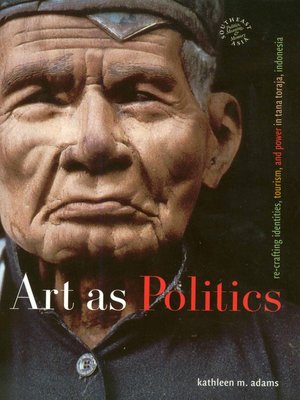Art as Politics
ebook ∣ Re-Crafting Identities, Tourism, and Power in Tana Toraja, Indonesia · Southeast Asia: Politics, Meaning, and Memory
By Kathleen M. Adams

Sign up to save your library
With an OverDrive account, you can save your favorite libraries for at-a-glance information about availability. Find out more about OverDrive accounts.
Find this title in Libby, the library reading app by OverDrive.



Search for a digital library with this title
Title found at these libraries:
| Library Name | Distance |
|---|---|
| Loading... |
Art as Politics explores the intersection of art, identity politics, and tourism in Sulawesi, Indonesia. Based on long-term ethnographic research from the 1980s to the present, the book offers a nuanced portrayal of the Sa'dan Toraja, a predominantly Christian minority group in the world's most populous Muslim country. Celebrated in anthropological and tourism literatures for their spectacular traditional houses, sculpted effigies of the dead, and pageantry-filled funeral rituals, the Toraja have entered an era of accelerated engagement with the global economy marked by on-going struggles over identity, religion, and social relations.
In her engaging account, Kathleen Adams chronicles how various Toraja individuals and groups have drawn upon artistically-embellished "traditional" objects—as well as monumental displays, museums, UNESCO ideas about "word heritage," and the World Wide Web—to shore up or realign aspects of a cultural heritage perceived to be under threat. She also considers how outsiders—be they tourists, art collectors, members of rival ethnic groups, or government officials—have appropriated and reframed Toraja art objects for their own purposes. Her account illustrates how art can serve as a catalyst in identity politics, especially in the context of tourism and social upheaval.
Ultimately, this insightful work prompts readers to rethink persistent and pernicious popular assumptions—that tourism invariably brings a loss of agency to local communities or that tourist art is a compromised form of expression. Art as Politics promises to be a favorite with students and scholars of anthropology, sociology, cultural studies, ethnic relations, art, and Asian studies.







